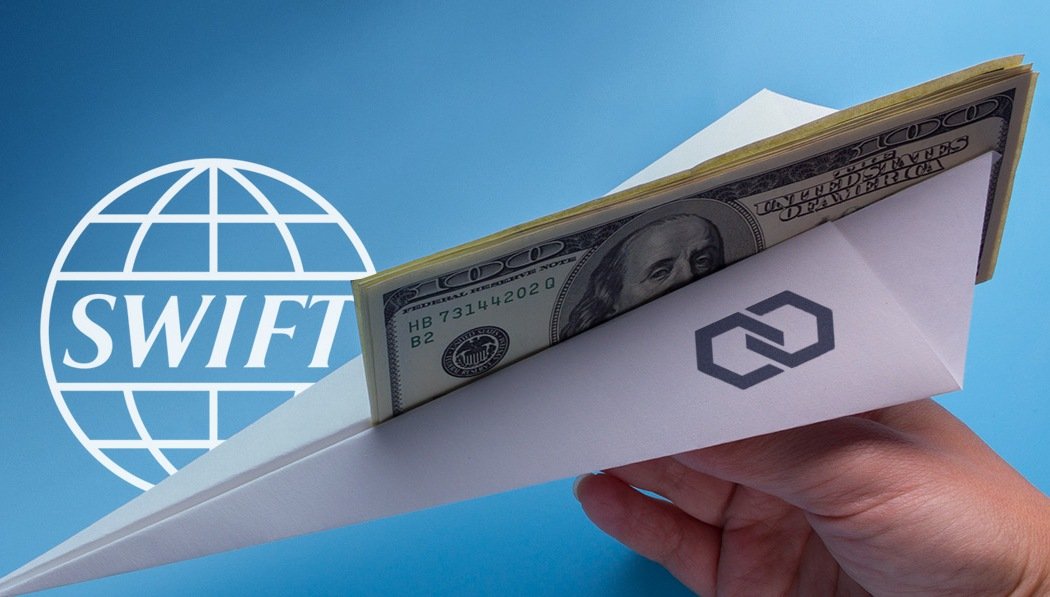Do you need to send money abroad? It is simple to transfer money overseas by going into a bank. But how do you do it? SWIFT is behind most international money transfers and security transactions. SWIFT allows banks and financial institutions to securely and quickly send and receive money transfer instructions through a vast messaging network.
Inside SWIFT Transactions
SWIFT is a messaging system that financial institution use for the secure transmission of instructions and information using a standardized set of codes. SWIFT is a critical part of the global financial infrastructure. However, SWIFT is not an institution. SWIFT doesn't hold assets or transfer them. Its utility lies rather in its ability to facilitate secure and efficient communication among member institutions. SWIFT assigns each financial institution a unique code. It can be either 8 or 11 characters long. You may also call the BIC SWIFT code or SWIFT ID.
World Before SWIFT
Before SWIFT, telex was the only way to confirm international funds transfers. Telex had limitations in speed, security, and a limited message format. Telex didn't have a standard system of codes such as SWIFT that could identify banks or describe transactions. Telex senders were responsible for describing each transaction in sentences, which the receiver read and processed. This resulted in many human errors and slower processing times. In 1973, the SWIFT system was created to solve these problems. Six major international banks created a cooperative society to operate a global network of financial messages that could be transferred quickly and securely.
Who Uses SWIFT?
SWIFT founders initially designed the network to facilitate communications about Treasury transactions and correspondent transactions. SWIFT's robust message format design enabled a large scalable expansion that allowed it to offer services.
SWIFT Services
Many services are offered by SWIFT that can be used to assist individuals and businesses in completing seamless business transactions. Below are some of the available services.
Applications
SWIFT connections allow access to many applications. These include real-time instruction matches for treasury or forex transactions, banking infrastructures for processing payments instructions between banks, and securities market infrastructure that processes clearing and settlement instructions.

Business Intelligence
SWIFT recently launched dashboards and reporting utilities, allowing clients to have a dynamic view of the activity, messages, and reporting. Reports allow filtering by country, region, message type, and other parameters.
Compliance Services
SWIFT is a service that focuses on financial crime compliance. It offers utilities and reporting for Know Your Customer, sanctions, and anti-money laundering.
What Makes SWIFT Make Money?
SWIFT is owned by its members. Classifications are determined by share ownership. All members must pay an annual membership fee and a one-time registration fee. These charges vary according to member classes. These charges can vary depending on the bank usage volumes. Different charges tiers are available for banks that produce a different volume of messages. SWIFT also offers additional services, as mentioned above. SWIFT's long-standing data collection supports these services. These services include business intelligence, compliance services, and reference data. They also offer SWIFT additional income streams.
SWIFT's Challenges
Most SWIFT clients handle large volumes of transactions for which manual entry is impossible. Automation is becoming more important for SWIFT message creation and processing. This comes at a high cost and increases operational overhead. SWIFT's success in automating business processes comes with a price. These are the areas SWIFT might need to reach out to its clients. SWIFT may be able to offer automated solutions in this area, which could bring in new income streams and keep clients interested in the long term.
SWIFT and Economic Sanctions
Countries around the globe have an incentive to maintain good standing with SWIFT because they rely on it to facilitate secure, fast, and seamless communication. SWIFT is managed by central banks of the Group of Ten nations, but it's a neutral organization that serves all its members.

Multiple times in recent years, the possibility of SWIFT membership being used as an economic sanction against members has been discussed. For example, in 2012, the European Union passed sanctions against Iran, which required SWIFT to remove sanctioned Iranian banks. In 2022, the leaders of the U.K. and EU, U.S., and Canada announced that certain banks in Russia would be removed from SWIFT due to its invasion of Ukraine.




